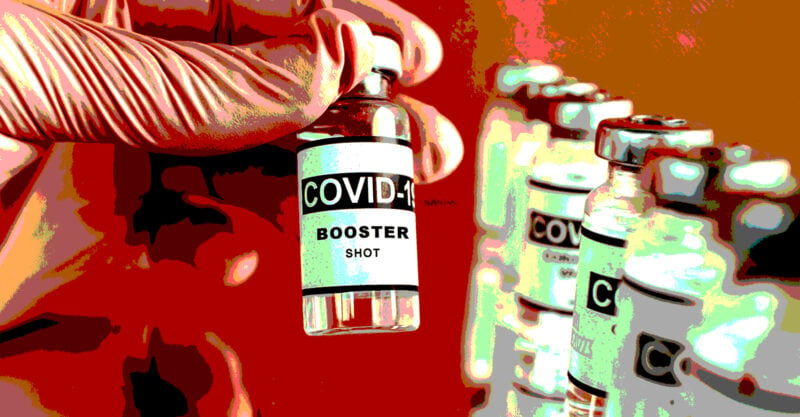Second and third doses of Pfizer’s COVID-19 vaccine provide protection against the Omicron variant for only a few weeks, according to peer-reviewed research published today in JAMA Network Open.
“Our study found a rapid decline in Omicron-specific serum neutralizing antibody titers only a few weeks after the second and third doses of [the Pfizer-BioNTech] BNT162b2,” the authors of the research letter wrote.
The authors said their findings “could support rolling out additional booster shots to vulnerable people as the variant drives an uptick in new cases across the country,” Forbes reported.
Danish researchers studied adults who received two or three doses of BNT162b2 between January 2021 and October 2021, or were previously infected prior to February 2021 and then vaccinated.
They found that after an initial increase in Omicron-specific antibodies after the second Pfizer shot, levels dropped rapidly, from 76.2% at week 4, to 53.3% at weeks 8 to 10, and 18.9% at weeks 12 to 14.
After the third shot, neutralizing antibodies against Omicron fell 5.4-fold between week 3 and week 8.
A preprint study released in February showed Pfizer’s two-dose regimen of its COVID-19 vaccine for children was only 12% effective against Omicron in children ages 9 to 11, and the effectiveness of the vaccine “declined rapidly” for children 5-11.
Researchers at the New York State Department of Health and the University at Albany School of Public Health examined the effectiveness of the vaccine in children 5 to 11 and adolescents 12 to 17 from Dec. 13, 2021 to Jan. 30, 2022.
The authors of the New York study wrote:
“In the Omicron era, the effectiveness against cases of BNT162b2 declined rapidly for children, particularly those 5-11 years. However, vaccination of children 5-11 years was protective against severe disease and is recommended.”
FDA admits boosters ineffective at preventing infection, but continues to support strategy
The U.S. Food and Drug Administration’s (FDA) vaccine advisory panel met April 6 — a week after authorizing a second booster dose for people over age 50 and the immunocompromised — to discuss the FDA’s booster strategy amid reports of waning effectiveness.
After nine-and-a-half hours, the Vaccines and Related Biological Products Advisory Committee (VRBPAC) failed to reach a consensus.
Dr. Peter Marks, director of the FDA’s vaccine division, Center for Biologics Evaluation and Research, admitted during the meeting that the fourth booster dose approved March 29 was a “stopgap measure” — in other words, a temporary measure to be implemented until a proper solution may be found in the future.
The FDA’s lead scientist for the strategy session, Doran Fink, admitted COVID-19 vaccine efficacy is waning for severe outcomes.
A Jan. 19 report from the Centers for Disease Control and Prevention (CDC) showed natural immunity against COVID-19 was at least three times as effective as vaccination alone at preventing people from becoming infected with the Delta variant.
Overall, the CDC study showed natural immunity outperformed vaccine immunity when it came to preventing infection and hospitalization from Delta. The agency late last month said almost 60% of Americans have had COVID-19.
A batch of Pfizer documents released April 1 confirmed Pfizer knew natural immunity was as effective as the company’s COVID-19 vaccine at preventing severe illness, The Defender reported last month.
U.S. Food and Drug Administration officials earlier this month suggested annual vaccines against COVID-19 may be necessary in the future.










